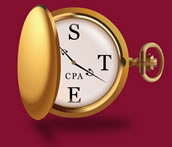There are hopes to get the third round of pandemic relief legislation signed into law by mid-March, meaning a third stimulus check totaling $1,400 per qualifying individual could be just a few weeks away. These payments are part of a large $1.9 trillion COVID relief bill designed to help those in need.
How do I ensure I get my stimulus check as soon as possible?
File your taxes
To determine your eligibility for the third stimulus check, the IRS will use your most recent tax return, so filing your taxes sooner than later may give you an edge on getting a stimulus check for the maximum amount. Plus, the earlier you file, the sooner you will receive your tax refund and any missing stimulus money (from the first two payments) you claimed on your return.
Filing your taxes also allows you the opportunity to set up direct deposit with the IRS, fix any errors, and update your address and contact information. All of which can lead to you getting your $1,400 stimulus check faster!
How could this round of stimulus checks differ from the first two?
More families will receive money
Unlike the first and second stimulus payments, adult dependants (including college students, older relatives, and disabled adults) qualify for this round. Families can earn up to $1,400 per qualifying dependent.
For the first stimulus, families received $500 for each dependent who was 16 years of age or younger. The second stimulus check increased the amount per child dependent to $600.
If signed into law, this would mean that roughly 13.5 million adult dependents would be included who weren’t counted before, according to the People’s Policy Project.
Mixed-status households could receive a stimulus check
Like the second stimulus that included families with mixed-status, this third proposal grants eligibility for all mixed-status households where just one household member has a social security number. This includes families with citizen children and noncitizen parents.
Incarcerated individuals may be eligible for a stimulus payment
A federal judge ruled that the IRS owes stimulus checks to incarcerated individuals who qualify for the payment. If the ruling stands, these individuals may be entitled to a third stimulus check as well as back pay for the first two.
Who is eligible for the full $1,400 stimulus check?
The income requirements to receive the full $1,400 payment have not changed from the second stimulus check. However, since the third stimulus checks are expected to max out at $1,400 ($200 more than the first round and $800 more than the second), some earners who didn’t qualify for previous stimulus money may actually get a small payment this time. Here’s the income limit to be eligible for the full amount under this plan:
- Individuals earning an adjusted gross income (AGI) up to $75,000 per year will receive the full $1,400 payment.
- Married couples filing jointly, earning up to $150,000, will receive the full amount.
After the $75,000 and $150,000 income thresholds, the payments begin to phase out, based on your income.
- Individuals earning an AGI over $100,000 per year will not receive a stimulus payment.
- Married couples earning over $200,000 will not receive a stimulus payment.


Leave A Comment